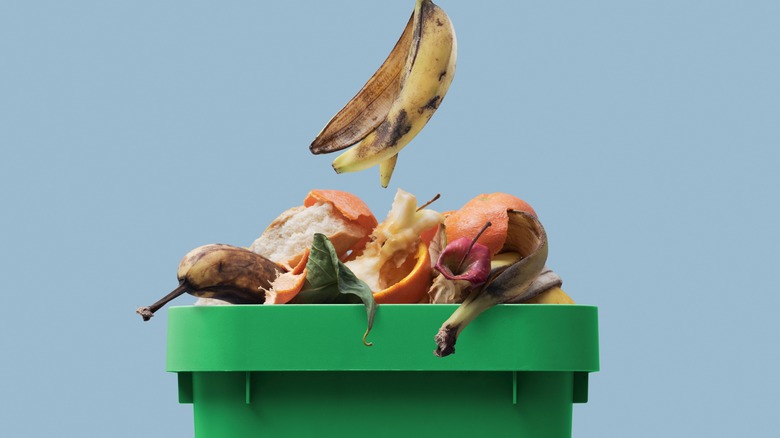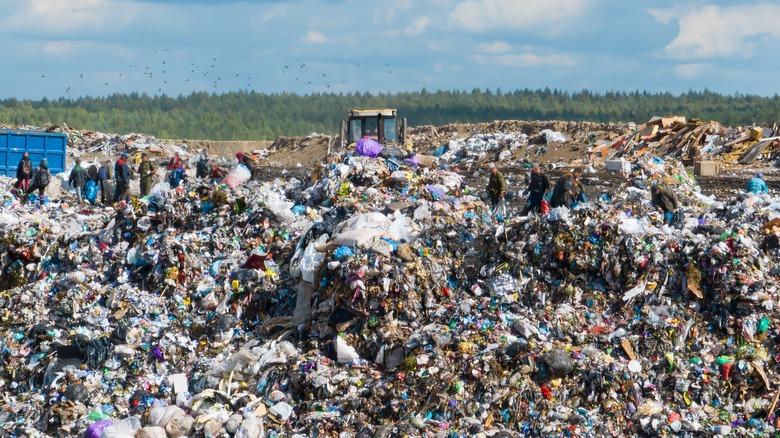How South Korea's Yellow Bag Composting Method Works
Sustainability is top of mind for countries, businesses, and people alike these days. While there are changes we can make in our everyday actions, a major one is considering what we consume, how we consume, and where it comes from. This absolutely applies to food. We're not here to preach being vegan and reducing meat consumption, because the concept of food sustainability goes much further.
While you may have heard of living a zero-waste life, have you heard of living a zero food waste life? According to Escoffier, a culinary arts school, zero-waste cooking means that all of the items are utilized to their fullest potential, which includes everything from the ingredients to the packaging. Not everything must be used in one dish, but deep consideration must go into how things are packaged and what is to be done with any leftover food. This can be something that is difficult to achieve when you first think about it, but South Korea, as a whole, has almost zero food waste – something we can all learn from.
Is composting the answer?
South Korea has had mandatory composting requirements since 2013, where residents must use designated yellow food waste bags to compost any uneaten food, per The Guardian. South Korea recycles almost all of its food waste, while in the United states most ends up in landfills. According to Feeding America, 108 billion pounds of food is thrown out on a yearly basis in the United States, which equates to $408 billion of food.
Meanwhile, in South Korea, when landfills started to become overfilled in the late 90s, the country needed to implement new regulations to avoid this issue. Over the years, they banned certain waste from being dumped into landfills and oceans and, in turn, developed a system for composting food waste.
Once the yellow food waste bags are either conveniently collected curbside or in apartment complexes, the contents get recycled into biogas (biofuel), feed, or fertilizers. According to The New Yorker, composting is a method that changes organic waste into a substance that is great for soil and capturing carbon. While landfills release a lot of methane, composting is an ideal alternative to food waste that will help the environment and land around us.
Not only does reducing food waste help us environmentally, but South Korea estimates that over time, they will save billions of dollars due to their food waste policies. We think it's pretty clear that most countries could learn a lot by taking a page out of South Korea's zero food waste book!

